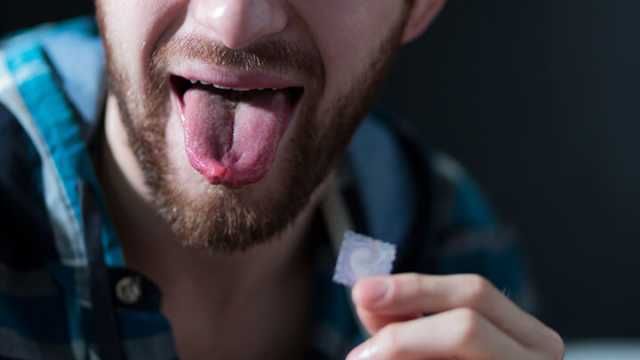
Research into the health benefits of LSD has never really recovered from its rocky start decades ago, despite the substance showing serious promise. Things went bad way back in the 1960s, when acid was just starting to become widely known and used.
At the time, the drug became closely identified with psychologist Timothy Leary. Leary was one of the first academics to seriously investigate the substance. He became convinced it could be used to treat numerous mental health issues. Unfortunately, he later became embroiled in a series of public scandals and was pushed out of the world of academia. By the time President Richard Nixon described Leary as “the most dangerous man in America,” his research into LSD had lost all credibility in the eyes of his fellow researchers. This included his claims that LSD actually has some positive health benefits.
LSD has some serious potential
However, in recent years a growing crop of adventurous researchers have begun to revisit Leary’s claims and reconsider whether he may have been onto something after all. The results are becoming increasingly clear: LSD has serious potential to treat many of the most common mental health issues out there. In particular, there are three common issues that LSD might be useful for treating. These include anxiety, depression and substance addiction.
Before diving into these issues, it’s worth noting there’s plenty of evidence to suggest LSD isn’t for everyone. For decades, it has been widely accepted that LSD can trigger the onset of conditions like schizophrenia and bipolar disorder in users with an underlying genetic predisposition to these disorders. Some people who use LSD can also later go on to suffer from psychosis, with some symptoms including mood swings, difficulty thinking clearly and paranoia.
Although much of these claims have been called into question by newer research showing no correlation between LSD use and mental health issues, it’s still worth remembering this substance might not be right for everyone. Despite this, the possible health benefits for other people shouldn’t be underestimated.
Anxiety

An estimated 12 percent of the world’s population is suffering from some form of anxiety disorder at any given time. It’s a serious mental health condition and there’s signs LSD might be able to help sufferers.
Some of the strongest evidence of this emerged in 2014, when the first major study after more than 40 years into LSD was conducted. Published by The Journal of Nervous and Mental Disease, the results were groundbreaking. The test subjects were a group of volunteers with life-threatening conditions, like cancer. As you’d expect, all exhibited high levels of anxiety and stress in clinical tests. Around half of the volunteers were diagnosed with full blown generalized anxiety disorder.
During the experiment, a random mix of volunteers was given small doses of LSD, while others were given placebos. Wondering how the placebo group was kept from knowing they hadn’t been given LSD? Well, the placebos themselves were designed to produce some side effects similar to LSD. Over the course of 12 months, the volunteers who got the real thing exhibited clear, across-the-board reductions in their stress and anxiety levels compared to the other group.As one of the researchers, Dr. Peter Gasser explained, “Their anxiety went down and stayed down.”
Depression
Like anxiety, depression is easily one of the world’s most common mental health disorders. However, LSD could help alleviate this condition, according to a study from 2015. And LSD isn’t the only drug that can help here. Numerous studies have found many of the most common psychedelic drugs like magic mushrooms can benefit people living with depression. When it comes to depression, these drugs work by creating “a looser form of consciousness,” according to long-time LSD researcher and head of The Beckley Foundation, Amanda Fielding.
“After psychedelics, individual networks that are normally independent disintegrate — the connectivity within the network nodes decrease. At the same time, though, the overall brain connectivity increases and networks that don’t normally ‘talk to each other’ become more connected,” she told the BBC. The end result is that LSD makes it easier for users to think outside the box. This includes reassessing how they view their life.
Addiction

In 2012, researchers at the Norwegian University of Science and Technology went back and looked over a collection of LSD studies from the 1960s and 1970s. The results of the review found that LSD might be helpful for treating people suffering from addiction. In six trials, researchers found volunteers given LSD were more likely to reduce their alcohol abuse. “We were surprised that the effect was so clear and consistent,” neuroscientist Teri Krebs told Nature.
The secret to psychedelic drugs like LSD and magic mushrooms is that they effectively disrupt learned behaviors. They create a little chaos in the brain, thus making addictions easier to break.
“Psychedelics probably work in addiction by making the brain function more chaotically for a period — a bit like shaking up a snow globe — weakening reinforced brain connections and dynamics,” said Robin Carhart-Harris, a psychopharmacologist at Imperial College London.
The 2012 investigation has since prompted new research into whether LSD could also be used to treat nicotine addiction.
Do you suffer from any of these conditions? If so, would you consider using LSD to help your symptoms? If you’ve tried it, what was your experience? Let us know in the comments.
— Tamara Pearson

